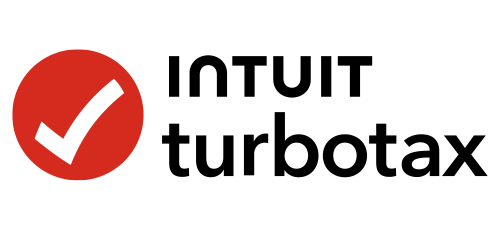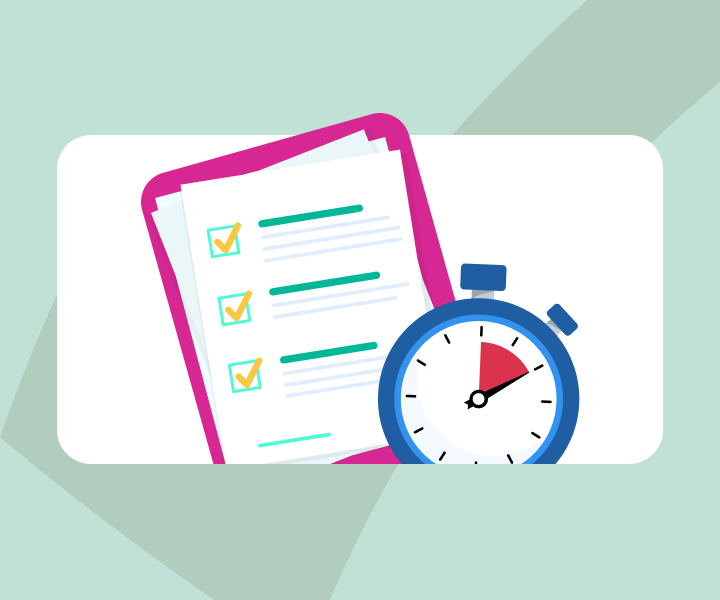What Happens If You File Your Corporate Income Tax Return Late?
TurboTax Canada
May 22, 2025 | 7 Min Read
Updated for tax year 2025


A new way to file your business taxes is here!
Running a business can be demanding, and it’s easy for some tasks, like filing your T2 Corporation Income Tax Return, to slip through the cracks. While meeting the filing deadline is important, the process isn’t always straightforward. Deadlines can vary depending on your corporation’s fiscal year-end and business type, which makes corporate tax filing more complex than personal tax returns.
It's important to know upfront that the Canada Revenue Agency (CRA) has strict guidelines to ensure business owners adhere to tax rules. It’s an essential obligation to get your T2 tax return filed on time—or else there can be penalties, interest charges, and, in some cases, legal implications.
The good news? Understanding the rules and acting quickly can help you avoid or minimize penalties. Here's a guide to T2 compliance, including understanding the consequences in order to mitigate the financial risk on your business. First, let's start with the basics.
Key Takeaways
- Incorporated businesses have 6 months after the end of their fiscal year to file T2 Corporation Income Tax Returns. If your fiscal year ends on December 31, your deadline is June 30 (because there is no June 31).
- The initial penalty for filing late is 5% of the unpaid tax that is due on the filing deadline, plus 1% of the unpaid tax for each complete month that the return is late—up to a maximum of 12 months.
- Penalties for filing a late T2 return may be waived due to extraordinary circumstances, CRA errors, and financial hardship through the CRA's Taxpayer Relief Program.
When is the corporation tax filing deadline?
Incorporated businesses have 6 months after the end of their fiscal year to file T2 Corporation Income Tax Returns. If your business's fiscal year-end is on the last day of a particular month, you will need to file by the last day of the following 6th month. If your tax due date falls on a weekend or statutory holiday, you can submit your return by the next business day. For instance, if your fiscal year ends on December 31, your corporate tax return deadline is June 30 (because there is no June 31).
It's important to note that each company's fiscal year—the 12-month period that businesses use for reporting purposes—can be different. While companies often do choose December 31 (end of the calendar year) for convenience, that's not always the case. So when it comes to filing corporate taxes, the term "year-end" can vary for each business.
However, if you have taxes due to the CRA, that payment should be made within 2 or 3 months after your filing date.
What businesses have to file a T2 Corporation Tax Return?
Businesses that have to file T2 tax returns include most Canada-based corporations—known as resident corporations—as well as nonprofit organizations, tax-exempt corporations, and corporations with no tax due.
Some businesses that aren’t based in Canada may also have to file a T2 return if they conducted business in Canada and had a taxable gain or disposed of taxable Canadian property during the year of filing.
The only resident corporations that don’t have to file a return include:
- registered charities
- tax-exempt Crown corporations
- Hutterite colonies
Yes, inactive corporations still have to file
All corporations existing in Canada have to file a T2 Corporation Tax Return each year, even if it's an inactive corporation. So even if you did absolutely nothing with your corporation all year, you need to file a T2 because it still exists. The only way to avoid filing a T2 tax return is to formally dissolve the company because corporations don’t just lapse or fade. Until that's done, taxes must be filed every year.
What happens if you pay your corporation tax late—or don't pay at all?
Now that you know the filing rules, it's time to understand the consequences if you file a late corporate tax return—because delays can occur. Missing your deadline can trigger penalties, interest charges, and complications with the CRA.
Here's a deeper dive concerning the penalties for filing late corporation tax, imposed by the CRA:
Stefanie Ricchio
CPA and TurboTax tax expert
- Initial penalty. The standard initial penalty for filing your T2 tax return late is 5% of the unpaid tax that is due on the filing deadline.
- Additional daily penalty. This includes the above penalty, plus 1% of the unpaid tax for each complete month that the return is late, up to a maximum of 12 months.
- Higher percentages for repeat lateness. If the CRA has issued late filing penalties and you've failed to pay within the last 3 tax years, the penalties can increase substantially: The initial penalties can reach up to 10% of the unpaid tax (when the return was due), plus 2% monthly penalty up to a maximum of 20 months.
- Compound daily interest. On top of the above penalties, the CRA also charges compound daily interest on unpaid taxes. This interest starts accumulating the day after your payment deadline and continues until the balance is paid off. Interest rates can change quarterly and include a 4% penalty rate above the average prime rate (APR).
- For example, if your corporation owes $20,000 in taxes to the CRA and files its return 3 months late, the initial penalty of 5% equals $1,000. An additional 1% per month then adds $600 ($20,000 x .o1 = $200 x 3 months). This brings the total penalty to $1,600, excluding interest.
These penalties apply to resident corporations, such as Canadian-controlled private corporations (CCPCs). Different penalties may apply to non-resident corporations.
Other than financial penalties, there can be other impacts to your business:
- Audit risk. Filing chronically late can put a laser dot on your business from the CRA, triggering more scrutiny from the agency and possible audits.
- Impact on credit. A delay in resolving tax obligations can negatively affect a corporation's creditworthiness or reputation.
- Legal problems. In extreme cases, persistent non-compliance with CRA corporate filing rules can prompt legal action or charges of criminality.
What's the best way to go about filing a T2 tax return late?
If you need to file your T2 Corporation Tax Return late, here's how to do it.
File as soon as you can (the T2 or T2 Short Return)
Every day counts, so even if your deadline has passed, filing your T2 as quickly as possible can reduce penalties.
First, there are 2 types of corporate returns used to file taxes: The regular T2 Corporation Income Tax Return and a T2 Short Return. The T2 Short Return is a quicker, simpler version of the standard T2 return. However, corporations must meet certain eligibility requirements in order to use it.
For example, if your corporation is private and business situation less complicated—like reporting no (or nil) net income or a loss of income for the given tax year—you can use the T2 Short Return.
Submit your return electronically
Once you've established which return to use, proceed to filing online. For tax years starting after 2023, most corporations have to file their T2 return electronically.
TurboTax, which is CRA-certified, makes it easy to file your T2 return fast. This could help you incur fewer penalties. With TurboTax Business Assisted, for instance, you can receive step-by-step guidance from a tax expert and make sure all your boxes are checked on your return.
Try to pay overdue taxes and keep up with instalments
To reduce accruing interest and penalties for your corporation, try to pay any outstanding taxes due. The CRA can offer payment arrangements for corporations that are facing financial hardships. Also, keeping up with your quarterly instalment payments can maintain your standing with the CRA—and keep you from owing more.
Get in touch with the CRA
If you proactively reach out to the CRA to communicate your issue, it can go a long way. The effort shows good faith that you intend to file and pay if you owe. This could mean you potentially incur fewer penalties. Just make sure to document all correspondence.
Could the CRA waive penalties for filing late?
The penalties for filing a late T2 tax return may be waived in some instances through the CRA's Taxpayer Relief Program. However, taxpayer relief is solely at the discretion of the Minister of National Revenue (and/or designated official).
Each request for taxpayer relief is reviewed on a case-by-case basis and decided on its own merit, meaning the reasons are often exceptional and usually based on criteria that are beyond the corporation's control. The circumstances also need to be fully documented. Depending on your situation, the Minister may decide to waive part or all of the penalties and/or interest.
3 specific situations when penalties could be waived
- Extraordinary circumstances: These could include serious illness or accident, natural or man-made disasters, public health crises (like pandemics), or civil disruptions that could shut down business services or mail carriers.
- Actions of the CRA: These issues on behalf of the CRA could include errors in materials provided to the public, processing mistakes, and/or undue delays in resolving an objection or an appeal.
- Financial hardship: When payment of the penalties or accumulated interest a corporation owes would cause a prolonged financial strain, like cash-flow problems or limited resources in order to function, the CRA may cancel some or all of the amount owing.
These are not the only situations where penalties and interest may be waived; just a few specific instances where some or all of the penalties and/or interest owing might be cancelled.
If your corporation qualifies, the waiver can be a good way to get back on track and focus on your business without having to deal with financial stress.
How to request to have penalties waived
The fastest way to request to have penalties and/or interest waived is to use Form RC4288, Request for Taxpayer Relief, and submit your request electronically. You can also write a letter and send it to the tax services office in your area. But that method will most likely take longer.
Either way, be sure to include all the relevant information and documentation to support your request, which includes:
- Outline of circumstances. Detail what caused the filing or payment to be late.
- Supporting evidence. These could include financial statements, news reports on the natural disaster or extraordinary circumstance, or medical records.
- Proof of reconciliation. Include documents/correspondence about attempts or actions made to file or pay as soon as you're able.
Tips on how to avoid filing corporate taxes late
It's important to get ahead of filing your T2, which requires taking proactive steps so you're ready for the next go-around. Here are some helpful strategies for submitting your T2 on time:
- Use automation. Set up automatic reminders that will tip you off to key tax dates, such as when your tax year ends, your corporation filing deadline, balance due day, and any instalment payment dates.
- Do bookkeeping year round. Monitoring your tax and financial situation throughout the year can keep documents organized and handy, reduce errors, and help you stay on top of business changes and potential tax implications. You'll also be in a better position in case of a surprise CRA audit.
- Let TurboTax do the filing for you. The experts at TurboTax can guide you on all things T2, and not only at tax time. If you run a corporation, you'll likely have tax-related tasks and questions year-round. TurboTax Business is here to ensure your taxes are compliant with government regulations to maximize your deductions and keep up with obligations, no matter your industry. Our Canadian tax professionals can even do the filing for you!
TurboTax has you covered every step of the way.
Handle your business taxes with our team of experts and easy-to-use software. If you have questions or fear you may file late, let our experts guide you step-by-step to minimize the impacts.
When is the corporation tax filing deadline?
What businesses have to file a T2 Corporation Tax Return?
What happens if you pay your corporation tax late—or don't pay at all?
What's the best way to go about filing a T2 tax return late?
Could the CRA waive penalties for filing late?
How to request to have penalties waived
Related articles

© 1997-2024 Intuit, Inc. All rights reserved. Intuit, QuickBooks, QB, TurboTax, Profile, and Mint are registered trademarks of Intuit Inc. Terms and conditions, features, support, pricing, and service options subject to change without notice.
Copyright © Intuit Canada ULC, 2024. All rights reserved.
The views expressed on this site are intended to provide generalized financial information designed to educate a broad segment of the public; it does not give personalized tax, investment, legal, or other business and professional advice. Before taking any action, you should always seek the assistance of a professional who knows your particular situation for advice on taxes, your investments, the law, or any other business and professional matters that affect you and/or your business.









